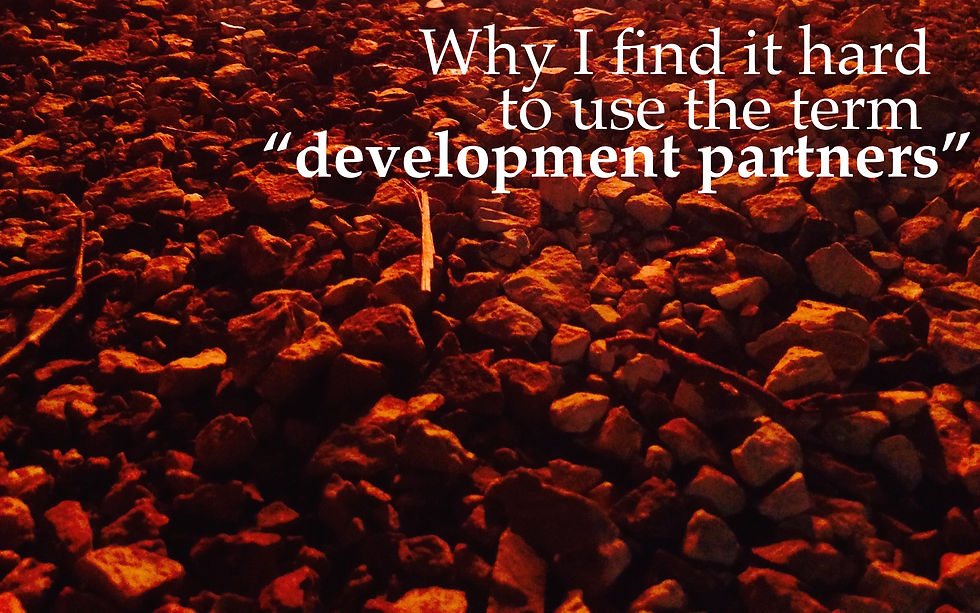Why I find it hard to use the term “development partners”
- Tamas Wells
- Jun 17, 2016
- 2 min read
These days in meeting rooms in Nay Pyi Daw and Yangon, the language of “development partners” is everywhere, as opposed to less attractive terms like “donor” or “recipient”.

Over the last 20 or so years, the aid sector has realised that there is a problem with the top down way aid is delivered. Through agreements like the Paris Declaration there were efforts to make aid more locally owned, harmonised and aligned with country priorities – in short to make aid more of a partnership rather than a hierarchical giver-receiver relationship.
So gradually in the last few years in Nay Pyi Daw and Yangon, rather than calling donors “donors” (and government “government”, and local organisations “local NGOs”) the term “development partners” has seeped in.
But I think we need to ask ourselves what happens when we use terms like this.
On one hand, changing the words we use can help to change our practices. If we start saying the word “partnership” more in our conversations perhaps relationships actually do become more equal over time. Perhaps if we call it “technical cooperation” rather than “capacity building”, we will actually start to work more cooperatively.
But what concerns me is that changing words can also have another impact.
It can serve to obscure, rather than solve, the inequalities that exist. Rather than a change in words leading to a change in practice, the change in words can cloud or mask the reality. At its worst, it can make things sound nice but actually be dishonest.
Should something be called “cooperation” or “partnership” if there are tangible signs of a very unequal relationship? Or what if genuine equality is not actually possible given the power imbalance between, for example, a cashed up international agency and a small local group – should we use words that sound better than the reality?
While I hope that a change in words can lead to a change in practice, I suspect that it often works differently. Using friendly words of cooperation and partnership may do more to sweep the problems of aid under the carpet, rather than solve them.
So I find that I can’t yet bring myself to adopt the language of “development partners”. It is not that I am against the work of international aid agencies or donors, or against the idea of partnership, far from it.
I just wonder if, at this time, honest language that reflects the limitations in relationships between international and local groups may go further than a set of new airbrushed terms.
Whenever we hear people use the term “development partners” we should ask ourselves whether it is helping, or hiding, the real issues of aid.
Tamas Wells is the editor of the PK Forum




Comments